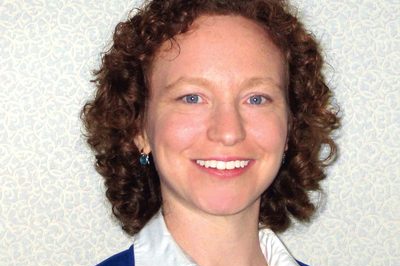One of the most common arguments against same-sex parents is that “all children need a mother and a father. ” But some LGBT parents are making the argument that being a mother or a father is not necessarily correlated to being female or male — regardless of one’s gender identity.
Rutgers University law professor and gay dad Carlos Ball explains, in “Why Men Can Be Mothers, Too”: “My male partner and I nurture and care for our two sons in ways that are indistinguishable from what society has traditionally expected of mothers” (Huffington Post, May 2012).
In his new memoir, “Does This Baby Make Me Look Straight?” actor and producer Dan Bucatinsky says same-sex parents “are freed from the shackles of traditional gender roles and allowed to explore the gamut of parental emotions and impulses.” We “have the added challenge, or privilege, to expand who we are with our kids. Whether you call it ‘maternal’ or ‘paternal’ care, the kids are getting both.”
He loves to roughhouse with his kids, he relates — but he also loves to nurse their scrapes and cuddle with them. “Is that mommyness?” he asks. “Or isn’t it all just ‘parentness’? And can both of us dads play all these roles in turn?”
Gay dads aren’t the only ones asking such questions. In her essay “Lesbian Dad,” writer Polly Pagenhart speaks of realizing that “I’ll be a loving, caring parent. But I just don’t feel motherly … ” Calling female parents “mothers” and male parents “fathers,” she explains, doesn’t work as well if “one’s gender itself lies somewhere betwixt and between the poles, as mine does.” (“Confessions of the Other Mother: Nonbiological Lesbian Moms Tell All,” ed. Harlyn Aizley, 2006.)
Instead, she wrote, “I can be something else. Something in between a mother and a father.”
And rock musician Katy Koonce, who self-identifies as a “trans-genderqueer-butch-dyke-mommy,” explains at Bilerico.com that when her son was born, she chose the name “Mommy,” because “To say ‘I want my mommy’ meant ‘I want a kind of omnipotent force to swoop down and take care of this problem’ … I loved the idea of being that force for someone in this crazy world of ours … But that has no real bearing as to how I feel in my body. For I am often not at home there.” (In an interview by her spouse, Paige Schilt, May 2009.)
Even when one’s gender identity matches one’s biological sex, the line between mother and father is not always clearly drawn. Amie Klempnauer Miller writes in “She Looks Just Like You: A Memoir of (Nonbiological Lesbian) Motherhood” (2010), “I feel more at home among the dads because I have never thought of myself as a particularly good woman. I have never regretted being female nor am I even remotely butch; I’m just not very good at girl stuff.”
During her partner Jane’s pregnancy, she says, “my inner guy is coming out of the closet. I feel urgently, irrationally protective of Jane … I don’t feel like I somehow need to mimic the paternal role, but yet it seems to be finding and claiming me.”
Interestingly, the law is ahead of our cultural norms in terms of a less-gendered view of parenting roles, Ball says. For example, in child-custody cases, courts no longer automatically give custody to the mother and support to the father. The law also now recognizes “that women do not have to give birth in order to be considered mothers.”
Nevertheless, although family law has largely ceased to treat heterosexual parents differently based on gender, Ball writes in his new book, “The Right to Be Parents”: “When it comes to LGBT parents, many courts continue to give great legal significance to the supposed differences between mothers and fathers.”
These differences have little basis in empirical evidence.
Ball cites Cambridge University professor of psychology Michael Lamb, one of the world’s leading experts on child development, who has found “fathers and mothers seem to influence their children in similar rather than dissimilar ways” (“The Role of the Father in Child Development,” 2004).
And new results from the National Longitudinal Lesbian Family Study, the longest-running and largest study of American lesbian families, have shown that teen boys raised in lesbian-headed households were just as well-adjusted as any others, even when they did not have an important male in their lives as a role model.
Ball suggests that we think of “mother” and “father” as “verbs rather than as nouns” and “focus on what it means to mother and to father a child,” instead of on the sex of the parent who is doing it. He notes that even some straight men “mother their children every day.”
In my mind, this would also mean that we must expand the traditional definition of “to father a child” beyond just a procreative act, and better acknowledge the childraising role of most fathers — LGBT and not — today. That would be a good thing.
I don’t think we need to stop using “mother” and “father” as nouns, however. But a more expansive view of what the roles encompass will free all parents to accept identities that suit us, and more fully embrace all that parenting may require. Our children in turn will feel less limited because of their genders. And arguments that children must have one each of a traditionally defined mother and father will seem increasingly outdated. n
Dana Rudolph is the founder and publisher of Mombian (www.mombian.com), an award-winning blog and resource directory for LGBT parents.
